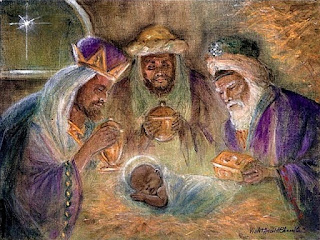In the first reading, Moses, the great teacher and leader of
his people, the one who spoke with God, promises his people that the Lord will
send other prophets to speak God’s word.
And God is faithful to that promise for years with faithful prophets
like Isaiah, Jeremiah, Ezekiel, and John the Baptist.
Yet, God had an even better plan and it begins to be
revealed in today’s gospel from the first chapter of Mark. Jesus is at home in Capernaum and joins the
community in the synagogue on the Sabbath.
When He teaches, the people are amazed.
Here is one who teaches with authority, with energy, with a power that
has never been seen before. This young
rabbi is unlike anyone else the people have seen or heard.
For Mark, Jesus is the Teacher who has come to reveal who
God is, how much God loves us, and what God has in store for those who will believe
in the One whom God has sent. What is
first seen today will all develop over time.
For now, the people are left to marvel at this man who is in their
midst.
Immediately, however, it is clear that the demons recognize
who Jesus is. They know that He is the
Holy One of God who has come to destroy them.
The demons can sense that the battle, which began in the Garden long
ago, is about to get serious. Jesus
silences their shouting and sends them out of the man whom they had been
tormenting. Jesus does eventually want
all to come to know Him, but it will not be from demons, but rather from the
power of His own words and the witness of His works.
Jesus has begun His work.
He has called His first disciples.
He has shown Himself to be a Teacher who is to be listened to and He has
power over demons and wills to set people free.
What needs to be done has begun.
Mark the evangelist sees life as a battle between good and
evil. He knows that we need to be saved
from our sin and from all evil that seeks to destroy us. More importantly, Mark knows that this battle
will be won through the Passion and Death of Jesus. That is the main story Mark is about to
tell.
As Mark’s story of the good news continues, what we need to do
is to remember that Jesus is always at the center, teaching and setting people
free. We trust Him to do the same
for us.



